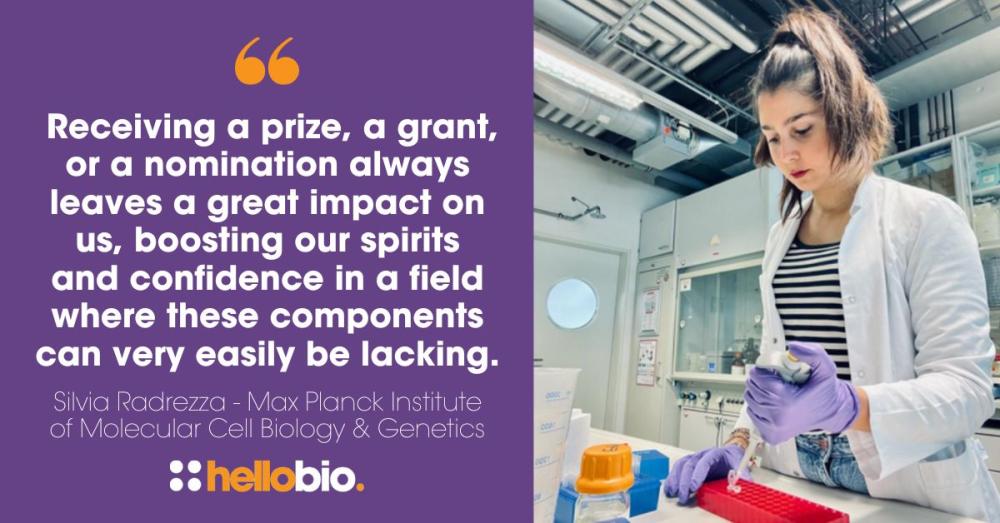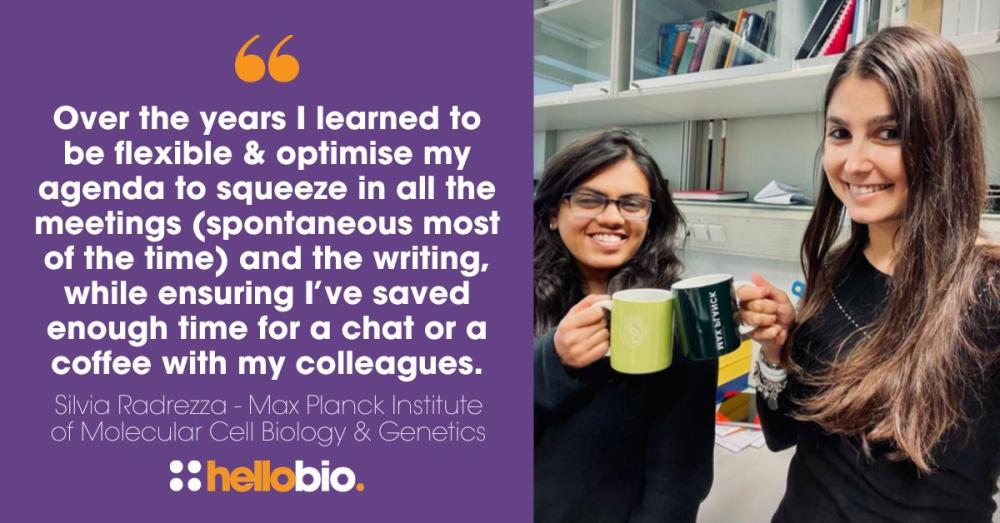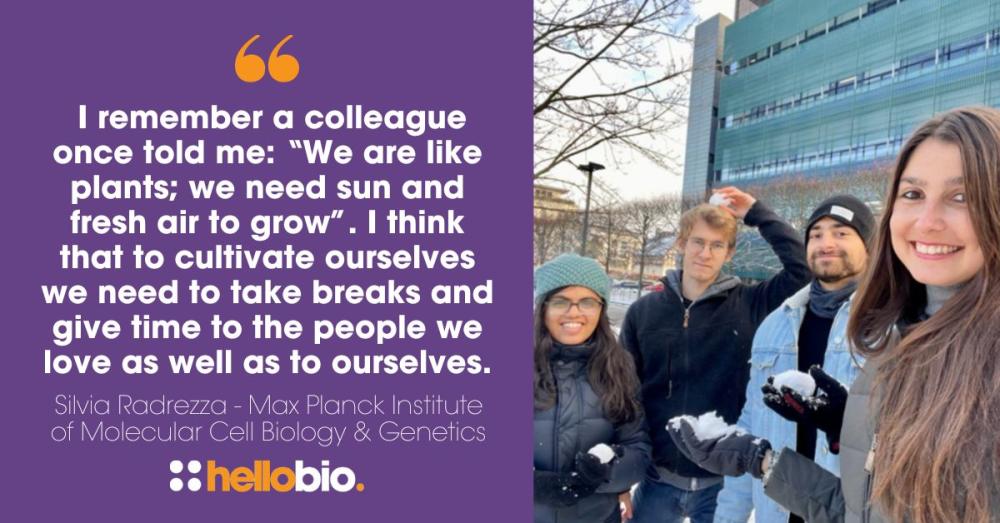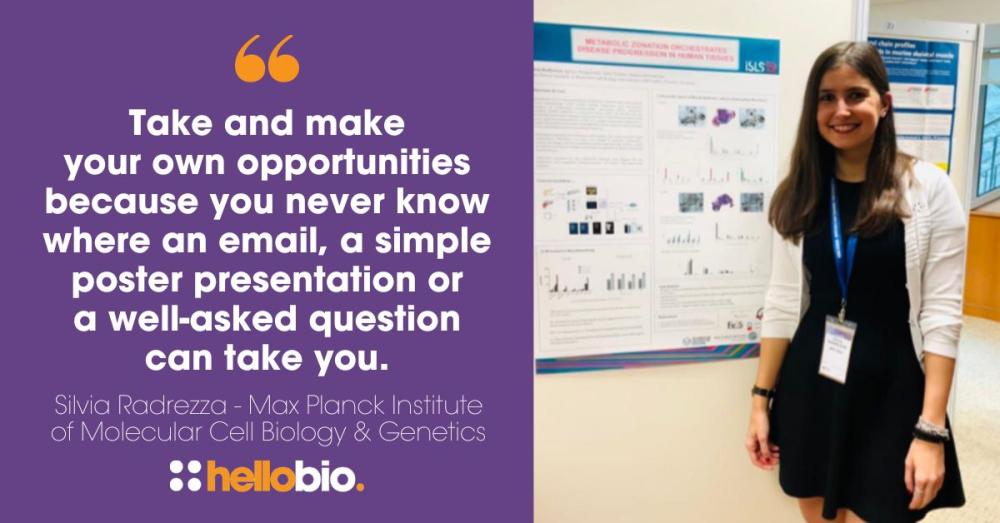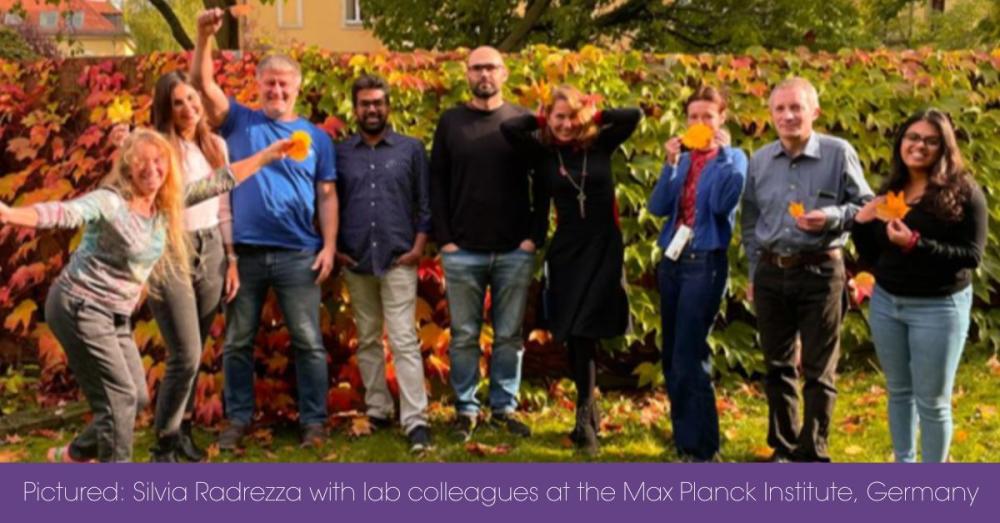Meet Our Lab Heroes Awards™ 2023 Highly Commended Nominees: Silvia Radrezza
We’re delighted to introduce the first of our Lab Heroes Awards™ 2023 Highly Commended nominees! Silvia Radrezza was nominated by her colleague Viditha Rao who praised “her remarkable ability to lead with both competence and compassion” as well as her eagerness to “foster a community of support, positivity and mentorship” within the lab.
Silvia is a postdoc at the Max Planck Institute of Molecular Cell Biology and Genetics in Dresden, Germany, working in the Shevchenko Lab. In 2017 she achieved a 1st level Advanced degree in Clinical Research at the University of Milan, followed by a fellowship in Biomedical Research at the Mario Negri Institute IRCCS (2017-2018). She then completed a PhD in Pharmaceutical Sciences in 2022, and her current research interests are focused on the identification, quantification, and underlying role of lipids in specific areas of interest in different pathological status.
We spoke to Silvia about her career so far, the scientists she admires the most, and her advice for achieving a good work-life balance!
Congratulations, Silvia! How did it feel when you found out that your colleague had nominated you as their Lab Hero?
Thanks! It was a fantastic surprise for sure. I’d say that with Viditha, we are more friends than simply colleagues. Reading those words made me realize this even more, and I also felt honored by her words.
How did it feel when you found out our judges had chosen you as 'Highly Commended'?
If with the nomination I was surprised and, I admit, also proud, when I received the email, I was completely: “Wait, what? Unbelievable!” and I called Viditha right away to read it together!
Why do you think it’s so important to celebrate life science researchers, and what more could be done to show recognition?
Regardless of our work field, I think that every achievement should be celebrated, and all the merits acknowledged. I’m already seeing many opportunities especially for young researchers, including initiatives like this one, to give them the right visibility as well as the economic and emotional support to pursue their scientific goals. Receiving a prize, a grant, or a nomination always leaves a great impact on all of us, boosting our spirit and confidence in a field where these two components can very easily be lacking.
What do you enjoy most about working in STEM?
I really like the bench work. I even got the nickname of “Miss Pipette”. Indeed, I could spend all day pipetting, mixing solvents, and looking at apparently empty Eppendorfs in the air. Having a new challenge every day when, most likely, plan A is never going to work, gives me headaches sometimes, I confess, but it also makes the work interesting. On top of this, I love travelling, and thanks to conferences all around the world I can merge my passion for sharing science with my passion for exploring. This is a real luxury.
Did you always want to be a scientist when you were younger, and if so, why?
My academic path was quite diversified and definitely not straightforward. The only thing I was sure of once I finished university was that working in a pharmacy was not for me. I wanted to do something more dynamic and, in general, I always prefer the harder option. So, I started to look around pretty much on my own, without any professor or mentor. At first, I landed in the field of clinical research but after some years, the bench work was calling me back, so I applied for PhDs in my country, Italy, once again not knowing any professor. I was accepted in Milan, where I was living already, and since then, yes, I have fallen in love with the idea of being a researcher. To answer your question then, no, being a researcher wasn’t my forever dream, but I followed my instinct and challenged myself to see how far I could get, and I'm still doing this today.
Can you tell us a bit more about what you're working on in the lab at the moment?
Mmm, it depends! I’ve quite different projects actually, three “big” and 5-6 as minor collaborations. Despite the topic, going from Type 2 Diabetes to brain development, all my work is centred on deepening the role of lipids. More specifically, I’m applying laser capture microdissection coupled with shotgun mass spectrometry to have information on the lipids profile and expression in diseased tissue vs normal ones in specific areas of interest. For other projects, I’m performing lipidomics analyses from full biopsies.
What does a typical day in the lab look like for you?
Even if I’m in Germany where the days start generally at first light, I’m not exactly an early bird. I usually reach the lab around 9am and once I’ve read and answered my emails, I’ll check my hundreds of post-its to recap what I planned the day before. I don’t have a strict daily routine but the bench work, the instrumental part, and the data analyses are, more or less, equivalent in my weekly schedule. Over the years I learned to be flexible and optimise my agenda to squeeze in all the meetings (spontaneous most of the time), and the writing, ensuring I’ve saved enough time for a chat or a coffee with my colleagues, mostly with Viditha as you can imagine.
What do you think are the biggest challenges facing life scientists at the moment?
Getting funds, I think, is still a common problem for all scientists. Working in Germany and especially at Max Planck Society, I admit, it’s quite a privilege. Coming from Italy, where to receive a simple reagent I had to wait weeks and there were not so many chances of making mistakes or exploring new alternatives due to a lack of resources, I really appreciate what this country and society can offer us. We also reached an advanced level of scientific knowledge in many topics, with exceptions of course, and even if there is always room for improvement, now, as scientists we need to go deeper and deeper to “find something new”. This is extremely fascinating but at the same even more complicated. We need to specialize our skills more and more. I think now it’s necessary for different fields to team up in order to complement our backgrounds and continue to make a difference.
Your colleague praised your ability to successfully balance your academic and personal life - what advice would you give to other scientists who want to improve their work-life balance?
Yes, I’m trying my best! During my PhD I was 100% focused on my thesis spending most of the weekend working also from home so, I know the other side of the medal. Over time this became quite overwhelming but the pressure of finishing on time and, in the last period, of starting the new job here in Dresden, kept me going. Lately, I realized that there is something else outside of the lab, that I’m not my project, and if some experiment goes wrong, I may not be the one wrong. Tomorrow is a new day, a new me, a new solution. I learned that to be productive I need some “distractions” which in my case is spending quality time with my boyfriend, going to the gym, hanging out with my friends, and traveling as much as I can.
I always remember a phrase told to me some years ago by a colleague “We are like plants; we need sun and fresh air to grow”. Well, I think that to cultivate ourselves we need to take breaks, and give time to the people we love as well as to ourselves. Despite how hard going through a PhD or a research project is, these years are not coming back and, in the future, I don’t want to associate this period of my life only to a working place, but also to great memories built outside.
What key piece of advice would you give to a younger scientist just starting out in their career?
Put yourself out there, be curious, accept and build your own challenges. Always be humble but don’t be shy or think you’re less than everyone else in the room. Don’t be afraid of making mistakes, ask if you don’t know. Take and make your own opportunities because “you never know” where an email, a simple poster presentation or a well-asked question can take you.
How do you see your career developing in the future/where do you see yourself in 10 years?
Where? I don’t know; I’m open to go where the opportunity calls me. I’m lucky to have a partner in science so we can understand each other and find the right solutions for both of us. For my career, I’d like to finish my work here in 2024 and then move to a company. I don’t think having a research group depending on my ability to win grants is really for me, even though I truly admire my colleagues who want to pursue this aim. But once again, as we say in Italy, “who will live, will see”.
Which scientists working today do you admire the most?
Without any doubt, Prof. Kai Simons. He introduced the concept of lipid rafts, as well as coined the term trans-Golgi network, and proposed its role in protein and lipid sorting. Simply, he is a “column” for the lipidomics field recently born. He’s also a co-founder of many scientific institutes and organizations, including the Max Planck Society where I’m working, and Lipotype, a company for lipidomics services. Every time I pass him in the hallways or at an event, he is always prompted to say hi, and to be kind, interested and active on all occasions despite his 85 years. I admire him for his excellent scientific contribution, still ongoing, and brilliant mind but also for his humbleness amongst younger and less experienced scientists.
What’s your favourite science quote?
I’ve got two actually, one printed as a sticker on my laptop which says “Forget princess, I want to be a scientist” and one that I read online: “Science - it’s magic that works” by K. Vonnegut.
Is there anything else you would like to tell us, eg. specific issues or initiatives in science that you are involved with or are passionate about?
In the last 6 years, I have been a freelance writer for an online journal. My “task” is to make scientific publications related to human and veterinary microbiomes easier to read and understand for the general public. Thanks to external collaborations, I’ve also had the luck to write informative leaflets or website pages for pharmaceutical companies and interview experts. In this way, I can always be updated and build a great network outside of my working field.
________________________________
Thank you so much for speaking to us Silvia! And congratulations once again on being highly commended!
Connect with Silvia and the team at the Shevchenko Lab:
- X (Twitter): @radrezzasilvia
- X (Twitter): @LabShevchenko
- LinkedIn: Silvia Radrezza
- Lab website: https://www.mpi-cbg.de/research/researchgroups/currentgroups/andrej-shevchenko/research-focus/
And you can meet our other Lab Heroes Awards™ 2023 prize-winners here.
________________________________
If you enjoyed this article, why not check out the other resources available on our blog. We are passionate about supporting life scientists including early career life scientists and PhD students - with really low-priced reagents, antibodies and biochemicals, early career scientist grants, and resources to help with both personal and professional development. We know how tough it is - so we hope you find these helpful!
More General Support for Life Scientists
For advice on wellbeing, dissertations, presenting at conferences, wellbeing, PhD support, networking and lots more, we have a huge range of articles to help - just click below:
Save up to 50% on our high purity reagents...
When you get to the stage of planning your experiments, don't forget that we offer a range of low-cost, high-purity agonists, antagonists, inhibitors, activators, antibodies and fluorescent tools (yes - they really are around half the price of other suppliers!) You can use our Quick Multi-Search Tool to search for lots of products in one go, and the range includes:
- Enzyme inhibitors and activators
- Chemogenetic ligands
- Ion channel modulators
- GPCR & ionotropic receptor ligands
- Cell biology reagents & biochemicals
Technical resources
Try our Molarity Calculator: a quick and easy way to calculate the mass, volume or concentration required for making a solution.
Try our Dilution Calculator: an easy way to work out how to dilute stock solutions of known concentrations
We also offer a comprehensive range of technical resources including antibody protocols and methods, product guides and mini-reviews:
And finally, don't forget to check back in with our blog regularly for our latest articles. If there’s something you’d love to contribute to the community, whether that’s an interview or article, drop us a line at hello@hellobio.com
---






